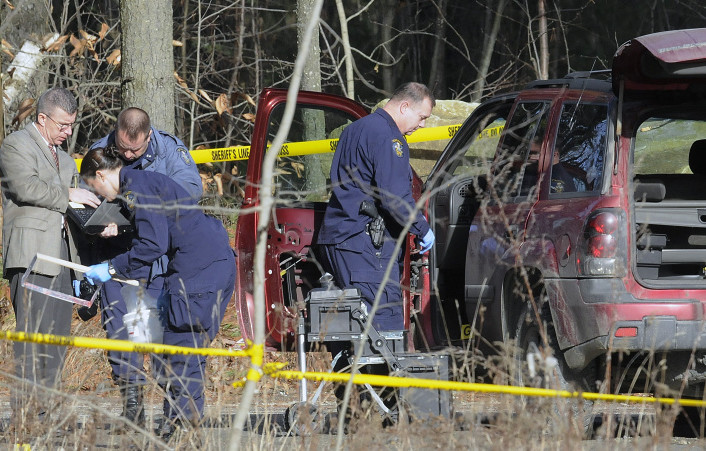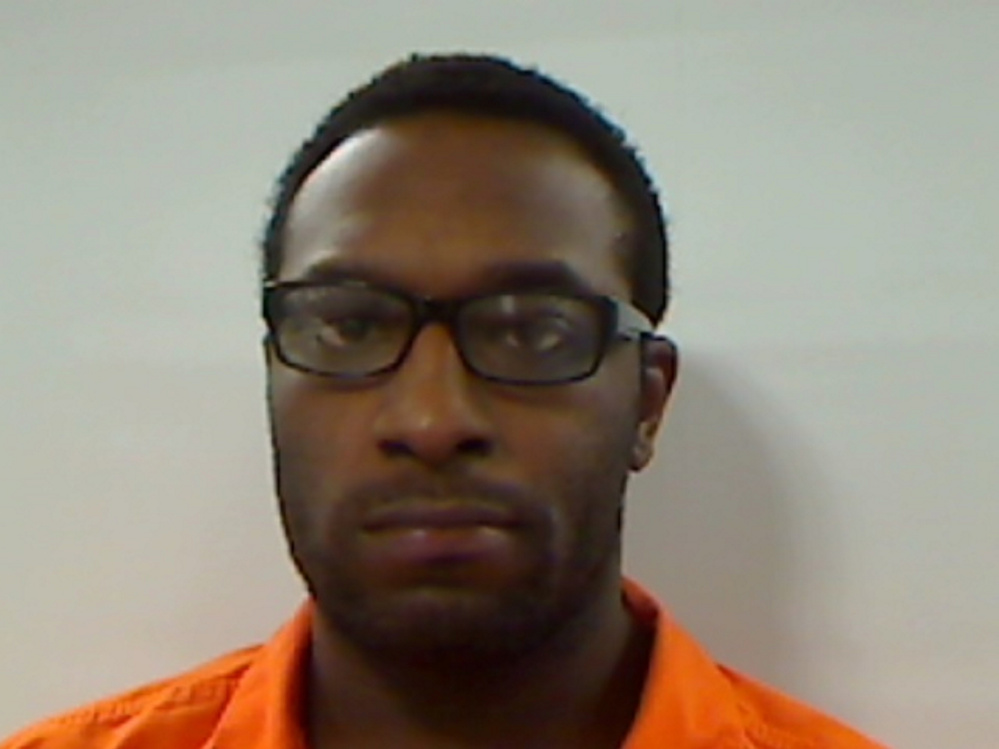A call for help from one of two people shot to death in Manchester on Christmas morning shows E911 workers and responders desperately trying to determine the location of the emergency and then realizing there is nothing they can do once they arrive.
Eric C. Williams, 35, and Bonnie Royer, 26, were found dead in Williams’ sport utility vehicle at the entrance to a gravel pit on Sanford Road in Manchester, not far from where the couple had lived on Easy Street in north Augusta. Williams was in the driver’s seat, Royer in the passenger seat.
Four days later, David W. Marble Jr., 29, of Rochester, New York, who was staying recently on Sewall Street in Augusta, was arrested and charged with murdering the couple, a crime police say was drug-related.
Details about the investigation and any affidavit providing the reasons why police say Marble was involved are contained in court documents sealed by a judge at the request of the state. Those documents remain impounded at the Capital Judicial Center.
Marble, who goes by the nickname “Dee Money,” remains held without bail pending a hearing April 8, where the state will attempt to get his right to bail extinguished.
A transcript of the conversation between dispatchers at the Somerset Regional Communications Center and the Augusta Regional Communications Center begins at 3:34 a.m. on Dec. 25, 2015. It concludes at some unspecified time not long after.
The transcript was obtained from the Augusta Regional Communications Center through a request made by the Kennebec Journal under the state’s Freedom of Access Act.
The call goes first to Somerset because it is the public service answering point for E911 calls originating in Manchester, but very quickly it is transferred to the Augusta Regional Communications Center located on Commerce Drive in Augusta.
While the transcript was redacted to remove names, phone numbers and other identifying information, the Somerset communications dispatcher tells the Augusta communications specialist that a woman called for help, but was unable to provide an address. The two communications specialists both repeatedly attempt to get a response from the woman, asking, “Ma’am?” “Ma’am, can you tell me where you are?”
There is no response.
The two communications officers talk about the location of the caller, which appears to move, but it’s unclear where.
“It sounds like outside. I didn’t hear any other background noises or the TV or anything, so I don’t know if she’s outside in a car or whatnot,” the Somerset communications specialist says, signing off after confirming what the woman said and repeating her phone number.
The transcript continues with the Augusta communications specialist seeking to get a response from the woman, who is still apparently on the open line.
“If you can hear me and you’re unable to speak, please press any button on your keypad now.”
The communications specialist then asks another dispatcher to dial that phone number as they try to determine whether the phone is in Augusta.
Road names are redacted, and many lines in the transcript are labeled “inaudible.”
At some point, Augusta police and rescue personnel become involved.
Then about 10 minutes after the Somerset communications center got the initial call, E911 communications specialists have a solid location at an intersection.
“There are no houses on the (inaudible) Road,” the Augusta communications specialist says. Then there is something about “or hiding in the woods,” but nothing else is heard.
As rescue vehicles arrive, it appears that the Augusta communications specialist gets an address not far from the scene.
The communications center officer continues to try for a response from the initial caller.
“Hello, if you can hear me but are unable to speak, please press any button on your keypad now.”
The location is being pinpointed to “that little pit road” apparently off Sanford Road.
Emergency responders and police now know they’re not looking for a residence.
“Well, it’s coming from a (inaudible) middle of the woods.” The location is near the address where the U.S. Cellular phone is registered.
“I can hear something. I don’t know if it’s a female or — something, some (inaudible) just came across.”
A background voice says, “10-4, start rescue. That vehicle’s coming back a maroon (inaudible).” Williams’ SUV was maroon.
Then there’s discussion about the proximity of Augusta Rescue being closer, apparently closer than Winthrop Ambulance.
“Yeah, because if they’re closer and this person is still alive because I just heard a noise — they’re going to get there way before Winthrop does. I’m going to put a note in that Winthrop was advised.”
Sirens are heard in the background. It’s obvious police and rescue units have arrived at the scene.
A background voice is recorded as saying, “Why don’t you try not to walk around too much — the vehicle — they’re not going anywhere — back away.”
The Somerset Communications Center log shows a 3:34 a.m. caller reported shots fired in Manchester. It is unclear whether that is what the original caller said or whether another person was reporting hearing the gunfire.
A week after the bodies were discovered, neighbors, friends, and family members of Williams and Royer took part in a memorial vigil outside the couple’s home.
At the vigil, Williams was described by his father as “a big-hearted guy” who would drop everything to help someone else. He was a graduate of Cony High School and the Kennebec Valley Community College, where he studied electrical line work.
Royer, who had a 6-year-old daughter and attended Cony High School, was remembered by a friend as someone who was “full of life and had such a kind, big heart.”
Betty Adams — 621-5631
Twitter: @betadams
Send questions/comments to the editors.






